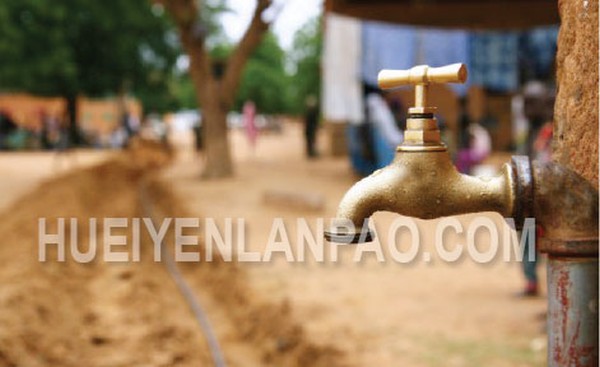Manipur Water Policy on the anvil
MSWP 2015 envisages easy access; water pricing based on amount used
Source: Hueiyen News Service
Imphal, October 31 2015 :
The Government of Manipur will soon adopt a State level water policy.
The Government has already formulated the Manipur State Water Policy (MSWP) 2015 based on equitable distribution and easy access by ensuring water security for all the citizens.
The Manipur State Water Policy 2015 has been drafted on the peculiarity of the rivers in Manipur flowing from catchment area within its political boundary.
The primary aim of the policy is to make water available for human use throughout the year for drinking, irrigation, hydro-power and industry.
The draft policy also aims at ensuring both quantity and quality drinking water accessibility for all households in Manipur.
"This should be at a reasonable cost and in an equitable and sustainable way.
It is also to ensure raw water for irrigation, industry and power generation throughout the year.
For this, the objective of conserving rainwater and controlling run-off from the hill-sides during the rainy season and making it last throughout the dry season, is essential," stated the preamble to Manipur State Water Policy 2015 .
|
The policy is centred on sustainability of water; upgrading and improving the water storage, supply and distribution systems in order to ensure quantity and quality of the supply of water to end users.
The policy preamble also states that during the time of water scarcity, women and girls, especially the poor are the most affected and therefore an effective policy and its efficient implementation with the involvement of women as the main stakeholders are paramount.
While pointing out that the hills and the valley are not separate watertight compartments and the lifestyle and the economy of the people of both the areas are inseparably intertwined.
However, it was also made clear that while the hill people needs to take care of deforestation, the valley people had the responsibility of looking after the rivers that flow from the hills.
As part of policy statement and strategy, the draft policy paper focuses on enhancing water accessibility, protection of water resources; preservation of water bodies; rainwater harvesting; flood control; water quality etc.
However, the draft Manipur State Water Policy also touches upon the issue of water pricing and water cess collection.
The policy says that water pricing and use of water meters is required primarily for conservation of water supplied, besides the requirement for collection of revenue.
It says, "The pricing will be based on the amount of water used and not on a flat rate basis so as to prevent wasteful use of water.
Water metering will be promoted and fitted initially on demand and eventually made compulsory" .
As far as possible, water cess will be worked out to recover the full cost of operation and maintenance in the long run, be it for drinking, irrigation, industry or hydro-power generation.
The draft policy says this will be supported by dedicated efforts to improve the efficiency of operation and maintenance with cost effective measures.
While doing so due consideration and concession will also be made for those Below Poverty Line (BPL) families who cannot afford to pay so that they are not deprived of the minimum required quantity of water.
"Water Pricing and Collection of cess/tax will be done separately for drinking, irrigation, industry and hyro-power generation.
Water used for commercial purposes will be fixed at a higher rate than that used for domestic purposes," says the policy.
The policy hoped that that the onus of water price fixing and collection of water cess/tax will be vested with the local bodies so that they can maintain the distribution systems and manage the water supply systems.
The implementation of the policy will involve extensive and intensive convergence between line departments, district administrations, panchayats, municipalities, district councils, local bodies, NGOs and other stakeholders.
While doing so due consideration and concession will also be made for those Below Poverty Line (BPL) families who cannot afford to pay so that they are not deprived of the minimum required quantity of water.
"Water Pricing and Collection of cess/tax will be done separately for drinking, irrigation, industry and hyro-power generation.
Water used for commercial purposes will be fixed at a higher rate than that used for domestic purposes," says the policy.
The policy hoped that that the onus of water price fixing and collection of water cess/tax will be vested with the local bodies so that they can maintain the distribution systems and manage the water supply systems.
The implementation of the policy will involve extensive and intensive convergence between line departments, district administrations, panchayats, municipalities, district councils, local bodies, NGOs and other stakeholders.








